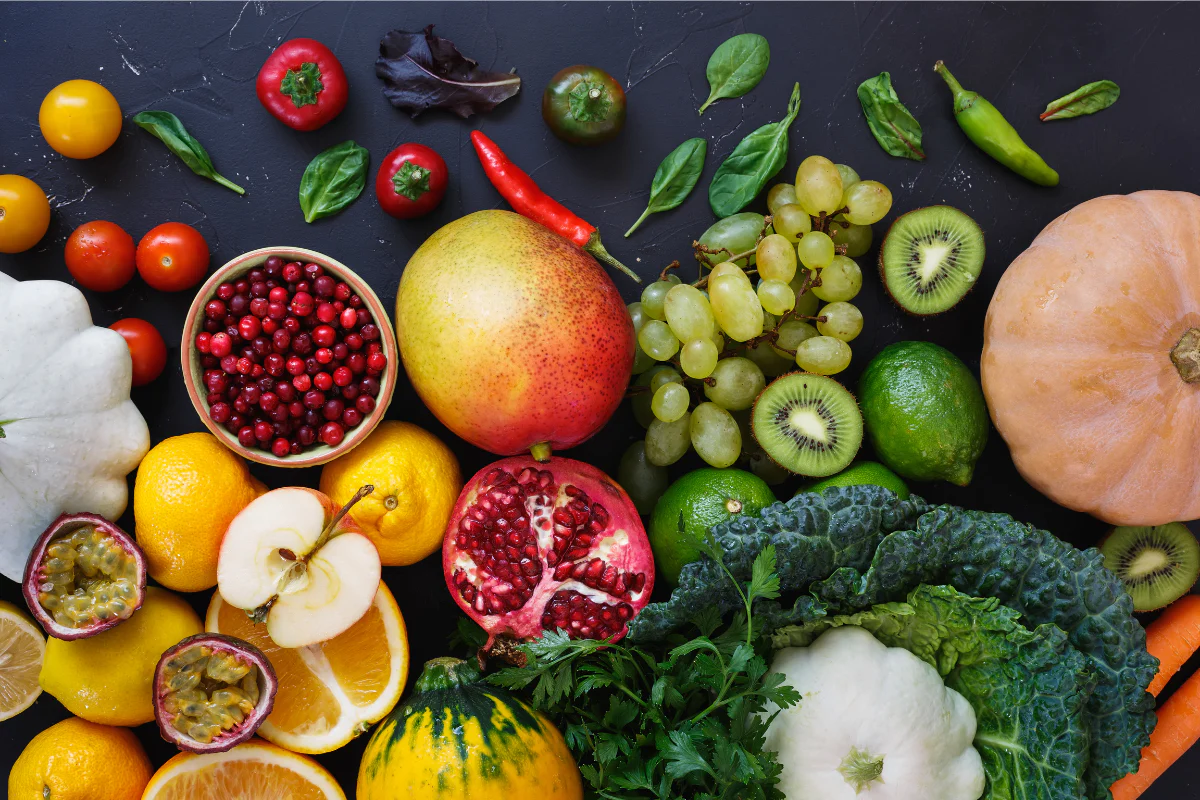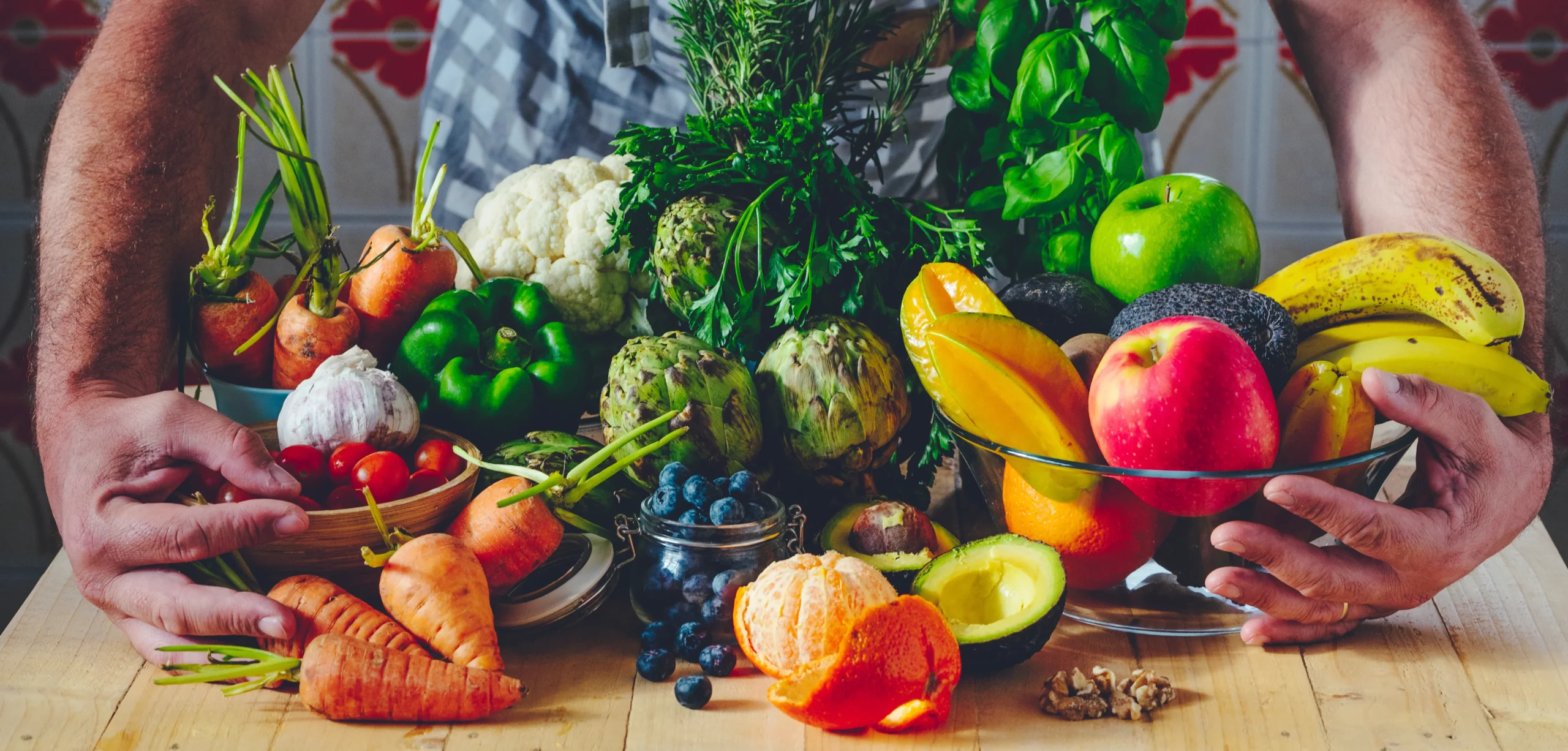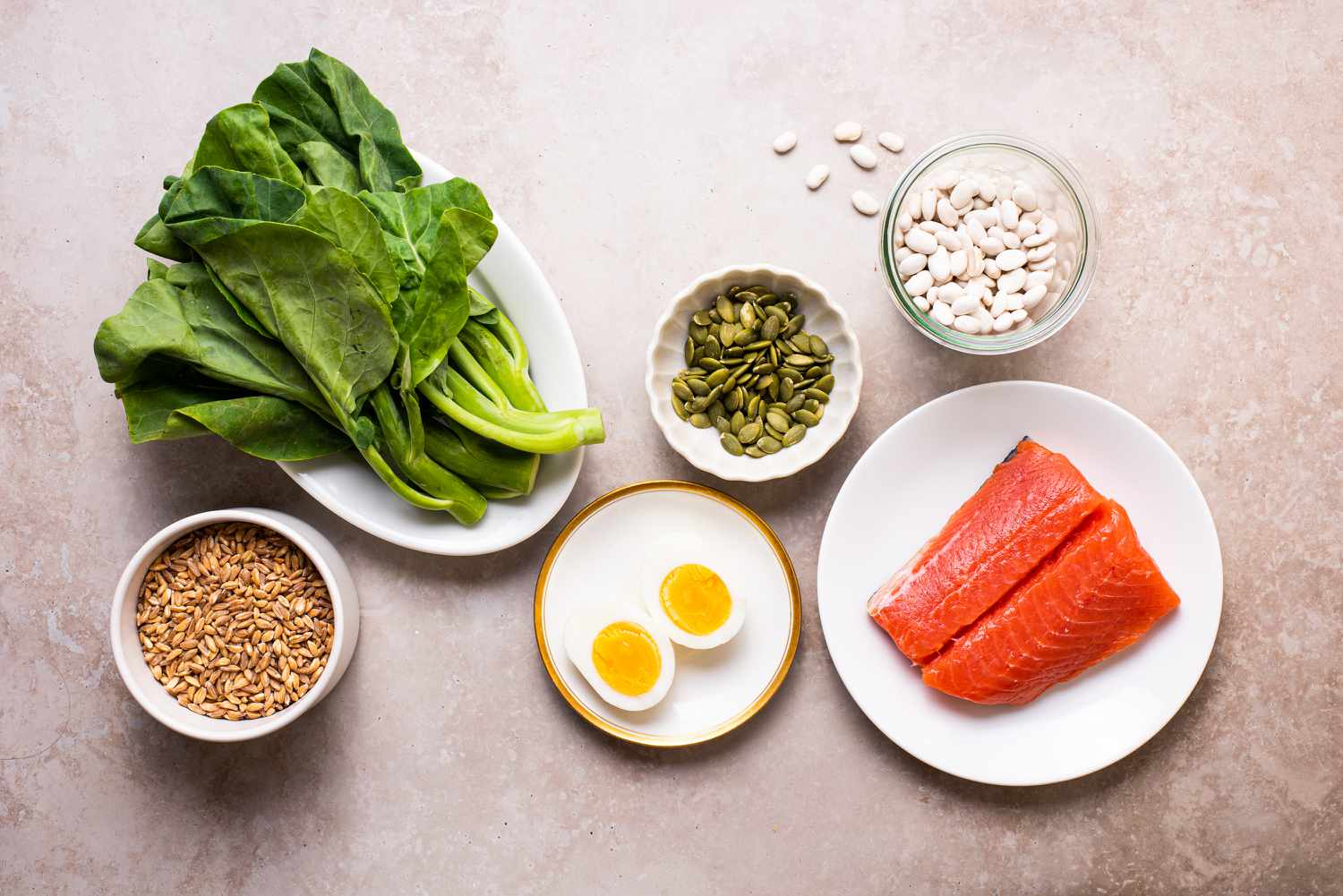
Supercharge Your Meals: Delicious Nutrition Hacks
Discover simple, yet effective nutrition hacks to elevate your meals and boost your overall well-bei...


Unlock the secrets to fueling your fitness journey with the right nutrition. Learn the fundamentals of balanced eating and how to optimize your performance through smart food choices.
Look, I'm gonna be straight with you. I've seen way too many people in Canada spending hundreds of dollars on gym memberships and fancy workout gear, only to wonder why they ain't seeing results. The truth is pretty harsh - you can't out-train a bad diet. It's like trying to fill up a car with premium gas while there's a huge hole in the tank. Doesn't matter how good the fuel is if it's all leaking out.
After talking to dozens of fitness enthusiasts across Canadian gyms and studying nutrition for months, I realized something pretty shocking. Most people know they should eat better, but they have absolutely no clue what "better" actually means. They think grabbing a protein bar from the vending machine counts as good nutrition. That's like thinking a band-aid fixes a broken bone.
The fitness industry in Canada is worth billions, but nutrition education? It's treated like an afterthought. Most gyms will teach you fifteen different ways to do a bicep curl, but won't spend five minutes explaining why your post-workout meal matters more than the workout itself. This gap is exactly why so many Canadians plateau in their fitness journey or give up entirely.
What I'm about to share isn't another fad diet or some complicated meal plan that requires a chemistry degree to understand. These are the fundamental nutrition principles that actually work - the ones that turn your body into an efficient machine instead of a confused mess. Whether you're trying to lose weight in Toronto or build muscle in Vancouver, these basics will change everything.
Here's where most people mess up completely - they think all calories are created equal. That's like saying a dollar bill and four quarters are the same thing just because they're both worth a dollar. Technically true, but totally missing the point about how your body actually uses them.
Protein is your muscle's best friend. Every single Canadian I know who's successfully transformed their body makes sure they're getting enough protein. We're talking about 0.8 to 1.2 grams per kilogram of body weight for regular folks, and up to 2 grams for serious athletes. That means if you weigh 70kg, you need between 56 to 140 grams of protein daily, depending on your goals.
A Tim Hortons breakfast sandwich has about 20g of protein. A cup of Greek yogurt adds another 20g. Two eggs give you 12g. That's 52g before lunch - not bad for a typical Canadian start.
But here's the kicker - most Canadians front-load their carbs and back-load their protein, which is completely backwards for muscle building and fat loss.
Carbohydrates aren't the enemy - they're fuel. But the type of fuel matters big time. Complex carbs like oats, quinoa, and sweet potatoes provide steady energy for hours. Simple carbs like the sugar in your double-double provide a quick spike followed by a crash that leaves you hungrier than before.
Canadian winters make this especially important. When it's -30°C outside and you're stuck indoors more, your body craves comfort foods. Understanding that your carb cravings are often just your body asking for sustained energy helps you make better choices. Reach for steel-cut oats instead of sugary cereal, sweet potato instead of white bread.
Fat doesn't make you fat - excess calories do. This is probably the biggest nutrition myth that needs to die. Healthy fats from sources like Canadian salmon, walnuts, avocados, and olive oil are essential for hormone production, brain function, and nutrient absorption.
Most Canadians eat like they're still in high school - grab whatever's convenient whenever they remember they're hungry. But your body runs on patterns, and when you work with those patterns instead of against them, everything gets easier.
Pre-workout nutrition sets the stage. Eating 1-2 hours before your workout gives your body time to digest and convert food into usable energy. A banana with a tablespoon of almond butter, or oatmeal with berries, provides the right mix of quick and sustained energy without making you feel sluggish.
Early Morning (6 AM): Light pre-workout snack, substantial post-workout breakfast
Lunch Hour (12 PM): Light pre-workout meal 2 hours before, protein-rich lunch after
Evening (6 PM): Afternoon snack at 3 PM, full dinner 2 hours post-workout
Post-workout nutrition is where the magic happens. You've got roughly 30-60 minutes after your workout when your muscles are basically screaming for nutrients. This isn't bro-science - it's actual physiology. Your muscle protein synthesis is elevated, your glycogen stores are depleted, and your body is primed to use whatever you give it for recovery instead of storage.
The ideal post-workout meal combines protein and carbs in about a 1:3 ratio. Chocolate milk actually isn't a bad option - it hits that ratio pretty well and it's convenient. But a proper meal with lean protein, vegetables, and complex carbs will always be superior for long-term results.
Canadian tap water is some of the best in the world, yet most of us walk around chronically dehydrated. Even mild dehydration - just 2% of body weight - can reduce physical performance by up to 25%. That's the difference between crushing your workout and struggling through it.
The old "8 glasses a day" rule is too simple. You need more water when you're active, when it's hot, when you're at altitude, and when you're consuming caffeine or alcohol. A better approach is to monitor your urine color - it should be pale yellow throughout the day.
Living in Canada comes with unique nutritional challenges. Long winters limit fresh produce options and increase comfort food cravings. Higher costs for healthy foods, especially in remote areas, make nutrition planning crucial. But these challenges also create opportunities for those smart enough to plan ahead.
Frozen vegetables are your winter ally. They're picked at peak ripeness and flash-frozen, often containing more nutrients than "fresh" vegetables that have traveled thousands of kilometers. Frozen blueberries, spinach, broccoli, and mixed vegetables are staples that should be in every Canadian freezer.
Meal prep is a game-changer, especially during Canadian winters when the last thing you want to do is cook after a long day. Spend 2-3 hours on Sunday preparing proteins, chopping vegetables, and portioning out meals for the week. Your future self will thank you when it's -25°C outside and you have a healthy meal ready in 5 minutes.
Canadian supermarkets like Loblaws, Metro, and Sobeys regularly rotate sales on healthy staples. Learning these patterns and stocking up during sales can cut your healthy food costs significantly. Frozen fish, canned legumes, nuts, and whole grains all have long shelf lives and go on sale predictably.
Let's be real - Canadian food culture isn't exactly fitness-friendly. Poutine, butter tarts, maple everything, and Tim Hortons on every corner. But you don't have to become a hermit to stay on track with your nutrition goals. It's about making smarter choices within the culture you live in.
At Tim Hortons, skip the donuts and go for the turkey bacon club on multigrain. At hockey games, bring your own snacks instead of relying on arena food. During cottage weekends, volunteer to bring the salad and grilled vegetables. You can participate in Canadian food culture without derailing your progress.
The supplement industry in Canada is worth hundreds of millions, but 90% of what's on the shelves is either useless or redundant if you're eating properly. Health Canada regulates supplements, but that doesn't mean every product with a Natural Product Number actually works.
Vitamin D is non-negotiable for Canadians. During winter months, we simply can't get enough from sunlight. Most Canadians are deficient, and this affects everything from bone health to immune function to muscle recovery. 1000-2000 IU daily is a good starting point, but get your blood levels tested to know for sure.
Protein powder isn't magic. It's just convenient protein. If you can get enough protein from whole foods, you don't need it. But if you're training hard and struggling to hit your protein targets, a quality whey or plant-based protein powder can fill the gap.
Avoid proprietary blends, anything promising overnight transformation, or supplements with ingredient lists that read like a chemistry textbook. Stick to single-ingredient supplements from reputable companies that third-party test their products.
Here's the harsh truth that nobody wants to hear - perfect nutrition for two weeks followed by complete abandonment is infinitely worse than pretty good nutrition for two years. The Canadians who successfully transform their bodies and keep the results don't follow perfect diets. They follow consistent, sustainable approaches that work with their lifestyle.
Start with one meal at a time. Don't try to overhaul your entire diet on Monday morning. Pick breakfast and focus on making that meal consistent and nutritious for two weeks. Once that becomes automatic, work on lunch. This approach feels slow, but it actually creates faster long-term results because the habits stick.
Plan for Canadian reality - hockey playoffs, cottage weekends, winter comfort food cravings, and summer barbecues. Instead of viewing these as obstacles, build them into your approach. Eat well 80% of the time and don't stress about the other 20%. Life's too short to skip every social event because it doesn't fit your meal plan.
Perfectionism kills more fitness goals than laziness ever could. The people who maintain their results for decades understand that consistency beats perfection every single time. Follow your nutrition plan 80% of the time, and don't sweat the other 20%. This isn't permission to go crazy - it's recognition that sustainable results require sustainable approaches.
Track your progress through how you feel, how your clothes fit, and how you perform in the gym, not just the scale. Weight fluctuates daily based on hydration, sodium intake, hormones, and a dozen other factors. Energy levels, strength gains, and body composition changes are much better indicators of whether your nutrition is working.
Remember, this isn't about following someone else's perfect plan - it's about developing your own sustainable approach that works with your schedule, your budget, your preferences, and your Canadian lifestyle. The best nutrition plan is the one you can actually stick to for years, not months.
Your fitness journey isn't a sprint with a finish line - it's a lifestyle change that compounds over time. Every good meal choice builds on the last one. Every day you prioritize protein and vegetables makes the next day easier. Every week you meal prep makes the following week more automatic. Start where you are, use what you have, and do what you can. The results will follow, and more importantly, they'll last.
json
Discover simple, yet effective nutrition hacks to elevate your meals and boost your overall well-bei...

Unlock the secrets of macronutrients and learn how to create a personalized nutrition plan that supp...

Explore the world of nutrition and learn how to fuel your body for optimal health and performance. D...